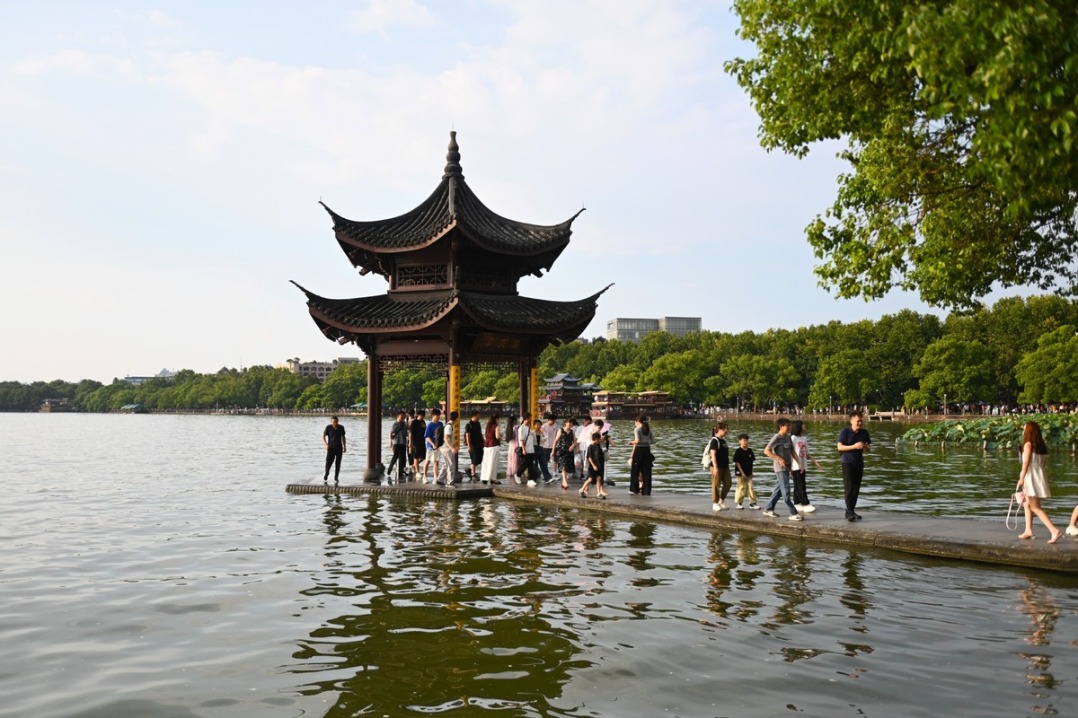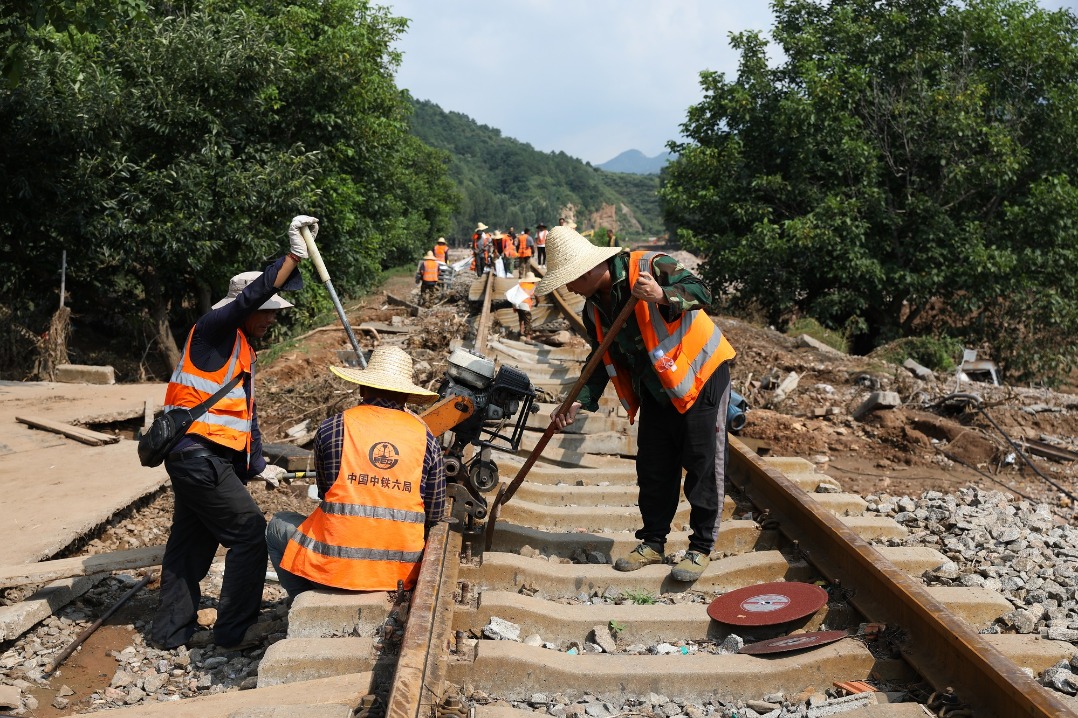Xi Story: West Lake and beyond


HANGZHOU -- On a summer weekend, Du Tingting and her boyfriend wandered through the throngs of people at West Lake in East China's Hangzhou, before settling on a wooden bench overlooking the rippling water and swaying lotus leaves. Despite the crowds, the spot felt almost private, serving as an unexpected pocket of peace at one of China's busiest tourist destinations.
"The benches here are perfectly spaced," Du observed. "They give couples just enough privacy while keeping you connected to the water's poetry."
What she didn't know is that this detail, the space between benches, was the result of a decision made in the 2000s by President Xi Jinping, then Party chief of Zhejiang province, of which Hangzhou is the capital city. This was one of many measures contained in his ambitious West Lake restoration initiative.
At his suggestion, the once tightly packed benches were set farther apart. His reasoning was simple — West Lake is a favored retreat for lovers, and they should be able to enjoy it without feeling crowded.
Over time, these thoughtfully arranged seats have become must-visit photo spots for couples. They invite visitors to pause, soak in the lake's misty charm, and lose themselves in the history and culture that have shaped West Lake's eternal beauty.
West Lake stands as one of China's most celebrated cultural landmarks, with its beauty enshrined in poetry and its mist-shrouded waters whispering legends of love.
In 2002, after taking up his post in Zhejiang, Xi began his inspection tour in Hangzhou with a visit to West Lake.
At the construction site of the new scenic area on the Yanggongdi Causeway, he examined the plans and emphasized that the lake was Hangzhou's "lifeline."
"Every inch around West Lake breathes history. Every step resonates with culture," he said, urging efforts to preserve the truly charming aspects of the "old" and the "aged."
He visited West Lake three more times within a year, emphasizing that "natural ecosystems and cultural landscapes should both be restored" — a principle that guided the conservation project throughout.
In the early days of China's economic boom following the reform and opening up, cultural development in some regions fell into a paradox: praised in principle but neglected in practice, often overshadowed by more immediate priorities.
This tension became particularly visible at West Lake, where the removal of perimeter fencing and restoration of cultural sites initially drew skepticism. The project increased maintenance costs and eliminated ticket revenues, leading some to question its economic rationale.
Yet Xi offered a transformative vision: "To resolve tensions between humanity and nature, between individuals, and within society, we must harness culture's power -- its capacity to nurture, enlighten and inspire."
For him, culture was never a luxury but the very fabric that binds society together, an invisible force fueling a nation's enduring vitality across generations.
This philosophy became a hallmark of Xi's approach, culminating in 2005 with the launch of "eight major projects," a sweeping initiative to promote Zhejiang's cultural development. The program prioritized heritage preservation, high-quality cultural works and academic research, among other key areas.
Thanks to heritage conservation efforts, West Lake ushered in a renaissance. Over 180 heritage sites and lost water areas were restored, breathing new life into the lake's historical and cultural landscapes.
In a visionary move to enrich the people's cultural life, Xi spearheaded the construction of landmark institutions along West Lake's shores. The Zhejiang Art Museum and the West Lake Museum now serve as cultural centers while enhancing the lakeside scenery through their graceful architectural forms.
Xi also prioritized visitor comfort and accessibility around the lake. Beyond thoughtful touches like generously spaced benches, the upgrades featured free admission to all lakeside parks, free use of all public toilets around the lake, and boats with cushioned hulls for gentle bridge passages — thereby seamlessly harmonizing heritage protection with public enjoyment.
"Xi's protection of West Lake's cultural heritage was both a benevolent governance act and a move that won people's hearts," recalled Zhang Jianting, then director of the Hangzhou West Lake scenic area administration committee.
In 2011, West Lake was inscribed on the UNESCO World Heritage List, becoming both a crown jewel among Chinese tourist attractions and a premier global travel destination.
West Lake's transformation was just one highlight of Xi's broader push to protect cultural heritage across Zhejiang. To protect an archaeological site, nearby quarries were shut down, making way for the creation of a park and museum complex, now a magnet for tourists.
The ancient Grand Canal has been revitalized through ecological restoration, cultural renewal, and improved public access. Once polluted and neglected, it now serves as both "a canal for the people" and "a canal for visitors" as Xi envisioned.
Today, Zhejiang boasts three UNESCO World Cultural Heritage sites, five national archaeological parks and 281 major national cultural relics protection units. As an economic powerhouse, the province has harnessed its cultural sector as a new engine of growth, underpinned by a robust public cultural service system, flourishing cultural industries and a steady pipeline of cultural talent.
From Zhejiang's Party chief to China's top leader, Xi has remained committed to advancing the cultural cause for the benefit of the people.
"The 'strength' of a culturally strong nation ultimately lies in the height of its people's thought, the status of their spirit, and the level of their cultural literacy," said President Xi in 2024.
As night fell, the moon's reflection decorated the water. Du Tingting and her boyfriend were captivated by the amazing view and decided to camp by the lake for the night.
"For a moment, I felt a connection with the ancient poets who once rowed across the lake and recited verses under the moonlight," she said. "It was simply incredible!"























